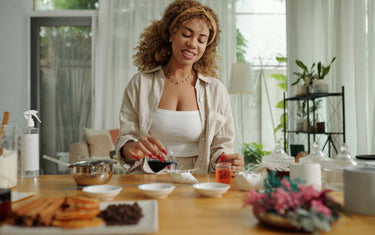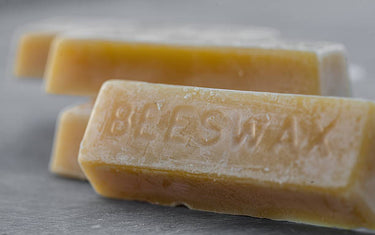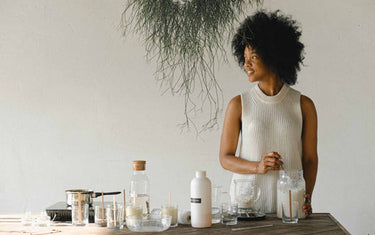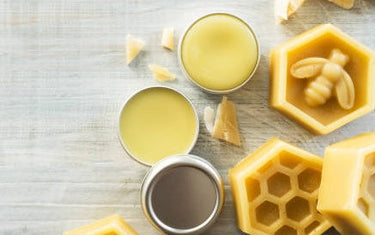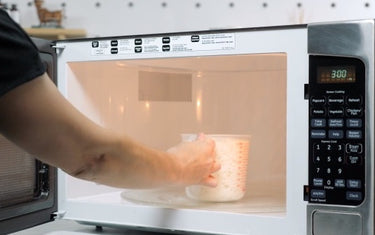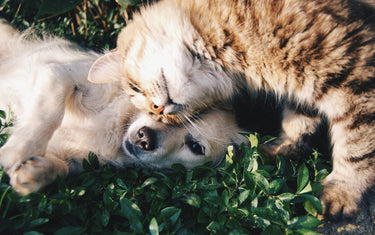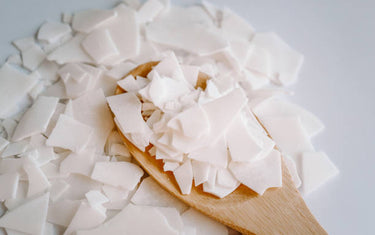4 min read / 23 April 2024 / yasmin sharp
Fragrance Oils vs Essential Oils in Candles: Which is Better?
Explore the differences between fragrance oils and essential oils in candles to determine which is better suited for your needs, whether it's for scent preference or wellness benefits.
Share this post
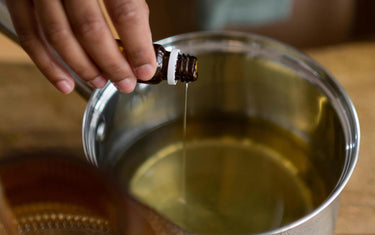
Some people use fragrance oils for candles because they want a specific scent, whilst others prefer essential oil candles because they contain a host of wellness properties.
Even if you know the difference between these two types of oils, how do you decide which one is best for your candles?
We weigh the pros and cons of using fragrance oils and essential oils in candles to help you decide which one will work best for you.
Fragrance Oils vs Essential Oils: Which one is better for aromatherapy?If you are using candles for aromatherapy, then essential oils may be your first choice as each one has its own unique health benefits. For example, eucalyptus essential oil is known for its ability to fight off infections and it can also stimulate an immune system response. Oils such as clary sage and peppermint can offer pain relief properties, whilst lavender oil is believed to be beneficial for skin. Fragrance oils are made to recreate a specific scent and do not contain any natural elements. However, they still have a role to play in aromatherapy, as many people find them useful for combating stress, anxiety and depression, helping them to keep control of their thoughts and emotions. |

Pros of using essential oil for candles
Natural scent throw
The natural aroma of an essential oil is often identical to its source, whether it’s the refreshing scent of a citrus fruit or the delightful tones of a delicate flower.
It’s an easy way to bring some of the best elements of nature into your home, all by simply lighting a relaxing candle.
Wellness benefits
Essential oil candles not only smell great, but they can also provide a host of natural properties that can be beneficial for your health.
For example, the likes of lavender essential oil can act as a mild sedative due to the presence of a compound called linalool, which calms the central nervous system.
Eco-friendly
Using essential oils in candles is an eco-friendly choice, as they should contain no additional additives or chemicals.
Crucially, this also means they will not release harmful toxins when used as part of a candle recipe, making them a safe option to use at home (although care should be taken around young children and pets).
Cons of using essential oil for candles
Higher cost
When compared to fragrance oils, using essential oils for candle making can be a more expensive option, as the candle oil is derived from natural sources, which costs more to extract and manufacture.
However, given that essential oils often last anywhere between 12-24 months, then they still provide excellent value for money.
Skin irritation
Essential oils are extracted from plants and flowers and because they are sold in a natural state, they remain highly concentrated.
Even though essential oil candles do not involve topical application, they can still cause irritation for some people, depending on the individual’s allergies or skin sensitivity.
When using essential oils for candles for the first-time, it is advisable to complete a patch test to ensure it is compatible with your skin.

Pros of using fragrance oils for candles
Long-lasting scent
Fragrance oils are not only available in a variety of scents, but the aroma is designed to be potent and long-lasting.
This is ideal for candles, as it should mean that whenever the candle is ignited, you get to enjoy your favourite scent without worrying about it fading away too quickly.
Cost-effective
Candle fragrance oils are made using synthetic chemicals, which are cheaper to produce compared to the labour-intensive process of extracting essential oils.
This often means that fragrance oils are a little bit less expensive, which can be a plus, especially if you want to invest in candle making ingredients for a business.
Good for mental health
We all have moments of high stress and anxiety and coming into contact with the right scent at the right time can make it easier to relax and find calm.
Everyday people use fragrance scents for candles to combat stressful moments, whether it’s at the end of a long day at work or simply to create a private space where they can unwind in peace and quiet.
Cons of using fragrance oils for candles
Man-made oils
If you want a 100% natural scent, then you may prefer to use essential oils instead of fragrance oils in your candles.
They are typically designed to recreate a scent experience that you wouldn’t find in the natural world, such as freshly dried laundry or the smell of the sea.
Some fragrance oils may contain some essential oils, but they will always have synthetic elements.
Not as eco-friendly
Whilst fragrance oils are not as eco-friendly as essential oils, as they are not derived from natural resources, good quality brands should ensure they are at least vegan-friendly and cruelty-free.
This can give you more peace of mind about the candles you use in your candles, especially if you follow a vegan diet or are concerned about products being tested on animals.
All fragrance oils sold by Nikura are vegan and cruelty free.

Final thoughts
If you are weighing up the pros and cons of fragrance oils and essential oils, there is no wrong option – only the right one that works for you.
Each type of candle oil can help in its own way, and it all depends on what you want to get out of the scent.
Whether you decide to use essential oils or fragrance oils for your candles, always follow the safety instructions provided with the product and they should never be consumed in any quantity.



